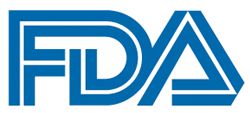Abiraterone Approved by FDA for CSPC
The combination of abiraterone acetate in combination with prednisone and androgen deprivation therapy has been approved by the FDA as a treatment for men with high-risk castration-sensitive prostate cancer.

The combination of abiraterone acetate (Zytiga) in combination with prednisone has been approved by the FDA as a treatment for men with high-risk castration-sensitive prostate cancer (CSPC). The approval was announced by Janssen Biotech, the developer of the antiandrogen therapy.
The approval was founded on an improvement in overall survival (OS) experienced by patient treated with the abiraterone, prednisone, and ADT in the phase III LATITUDE trial.1In this trial, the addition of abiraterone and prednisone to ADT reduced the risk of death by 38% compared with ADT alone. After a median follow-up of 30.4 months, median overall survival (OS) was not yet reached with abiraterone versus 34.7 months with placebo for patients with high-risk prostate cancer (HR, 0.62; 95% CI, 0.51-0.76;P<.001).
“LATITUDE was a large global trial which produced impressive and clinically significant results in overall survival,” lead investigator of the study Karim Fizazi, MD, PhD, Head of the Medical Oncology Department at Institute Gustave Roussy, Villejuif, France, said in a statement. “With today’s approval, abiraterone acetate plus prednisone could become a standard of care for patients with metastatic high-risk castration-sensitive prostate cancer.”
The LATITUDE trial randomized 1199 newly diagnosed men with high-risk metastatic prostate cancer to abiraterone, prednisone, and ADT (n = 597) or ADT and placebo (n = 602). Abiraterone was administered at 1000 mg daily and prednisone was given at 5 mg daily. Baseline characteristics were well balanced between the arms. The median age of patients in the abiraterone arm was 68 years, the Gleason score at diagnosis was ≥8 for 98% of patients, and 98% of men had ≥3 bone lesions.
In addition to OS improvements, there was a 53% reduction in the risk of radiographic progression or death with the addition of abiraterone (HR, 0.47; 95% CI, 0.39-0.55;P<.001). This remained consistent across subgroups. The median radiographic progression-free survival with abiraterone was 33.0 months compared with 14.8 months for ADT alone. The OS rate at 3 years was 66% in the abiraterone group versus 49% with ADT.
The time to pain progression was reduced by 31% with abiraterone versus ADT (HR, 0.695; 95% CI, 0.583-0.829;P<.0001). Additionally, the risk of developing a skeletal-related event was 30% lower with abiraterone versus ADT (HR, 0.703; 95% CI, 0.539-0.916;P= .0086). The risk of starting chemotherapy was reduced by 56% with abiraterone versus ADT alone (HR, 0.443; 95% CI, 0.349-0.561;P<.0001).
Overall, 63% of men in the abiraterone group experienced a grade 3/4 adverse event (AE) compared with 48% of those in the placebo arm. The most common grade 3/4 AEs with abiraterone versus placebo, respectively, were hypertension (20.3% vs 10.0%); hypokalemia (10.4% vs 1.3%); elevated alanine aminotransferase (5.5% vs 1.3%), and elevated aspartate aminotransferase (4.4% vs 1.5%).
Serious AEs were experienced by 28% versus 24% of men in the abiraterone group and placebo arm, respectively. AEs led to treatment discontinuation for 12% of men in the investigational group versus 10% in the placebo arm, and AEs led to death for 5% and 4% of men, respectively.
Abiraterone was first approved in 2011 in combination with prednisone for the treatment of men with metastatic castration-resistant prostate cancer following chemotherapy. It has since gained approval earlier in the treatment paradigm for use prior to chemotherapy.
Fizazi K, Tran N, Fein LE, et al. Abiraterone plus Prednisone in Metastatic, Castration-Sensitive Prostate Cancer.N Engl J Med. 2017;377:352-360.
BXCL701 Gains Fast Track Designation for mCRPC Treatment
February 13th 2024The FDA has granted fast track designation to BXCL701 with an immune checkpoint inhibitor for metastatic small cell neuroendocrine prostate cancer resistant to chemotherapy and showing no evidence of microsatellite instability.
Read More